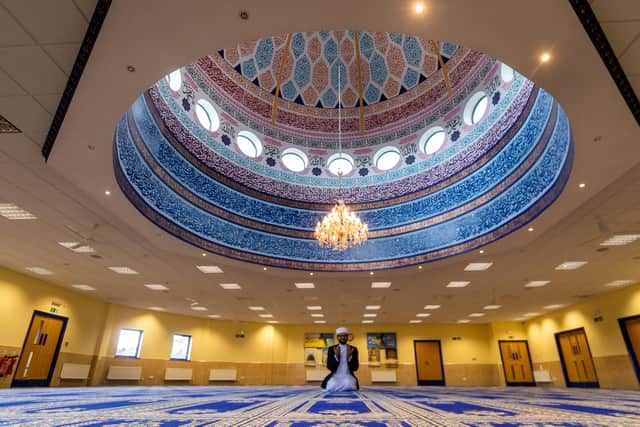Ramadan helps Muslims remember those less fortunate than us here and abroad - Qari Asim
Ramadan is the most eagerly anticipated time of the year for Muslims, rather than dreading the physical hardships the month inevitably brings, the majority of Muslims rejoice in the benefits to individual spirituality and the renewed connections with community through communal prayers in mosques and gatherings with family and friends to break the fast.
During Ramadan, Muslims abstain from eating and drinking anything from dawn until sunset so those fasting in the UK will go without sustenance for upwards of 14 hours each day. Fasting is only compulsory for those who are physically and mentally fit enough to deal with the challenges it brings. Certain groups of Muslims are exempt from fasting.
Advertisement
Hide AdAdvertisement
Hide AdThe concept of fasting is practised to varying degrees and with differing objectives in many religions across the world. Christians currently observing Lent, for example, will have given up eating something they otherwise enjoy for 40 days.


The main objective for fasting in Islam is to develop an increased awareness of God, and strengthen our relationship with Him during the course of the month by exercising self-discipline.
Ramadan is a time for increased self-reflection, prayer and contemplation, and for developing self-discipline which is a key virtue of character in Islam. Fasting is a deeply personal act of worship between an individual and their Lord alone.
There is a visceral connection between having an empty stomach and being grateful for what one has. By starving the body, we are feeding the soul and providing it with an opportunity to reconnect with its Creator, and many Muslims will tell you that by the time Ramadan comes around every year, they are in need of the opportunity to shift the focus away from material goals, renew their personal relationship with God, detox their bodies and enhance mental resilience.
Advertisement
Hide AdAdvertisement
Hide AdRamadan is also a time when Muslims celebrate family and community life. It is tradition for Muslims to gather for Iftar, the meal after the sunset, with extended family, friends and neighbours. Many families take it upon themselves to prepare food for the whole community to share. In the spirit of this sentiment, as part of the national Big Iftar initiative mosques across the country will open their doors and invite people from their neighbourhoods to join in the evening feast. At my mosque in Hyde Park, Makkah Mosque, we will host a community Iftar on Thursday, March 30, with a view to connecting those of different cultures and backgrounds, and giving people an opportunity to experience the feeling of community and generosity that are abundantly displayed during Ramadan. All are welcome.
Whilst fasting is akin to a spiritual retreat, Muslims will continue to go about their daily lives during the month. For those of school or working age, this will mean waking up for a pre-dawn meal before 4 am known as suhoor, then praying the morning prayer before going back to sleep until the school or work day begins. Day time prayers and finding time to recite the Quran will be weaved into normal day-time activities until time for breaking of the fast at sunset. Muslims will increase the amount of time they spend reading and understanding the message of the Holy Quran as the first portion of the Qur’an was revealed to Prophet Muhammad (peace be upon him) during Ramadan.
Given the physical challenges, non-Muslims friends, colleagues and neighbours showing support or willingness to learn more about Ramadan is generally very welcome.
Ramadan promotes extra generosity, respect and giving preference to fellow human beings amongst Muslims. We remember those less fortunate than ourselves – whether they are the homeless and refugees in our hometowns or abroad.
Advertisement
Hide AdAdvertisement
Hide AdYoung Muslim volunteers from my mosque and other Muslim charities will distribute over 10,000 meals to the vulnerable in Leeds over the month of Ramadan. This year Muslims of Yorkshire will raise millions for those who have lost their loved ones, homes and livelihoods as a result of the devastating earthquakes in Turkey and Syria. My charity, Peace Matters, along with other charities, has already donated thousands of food parcels, blankets, winter clothing and tents to the victims of the earthquakes. The charity and generosity shown in this month strengthens the human bond and the message that there is enough in the world for everyone’s need if people are willing to redistribute their wealth to those in need.
Imam Qari Asim is Imam at Makkah Mosque Leeds and trustee of Peace Matters charity.